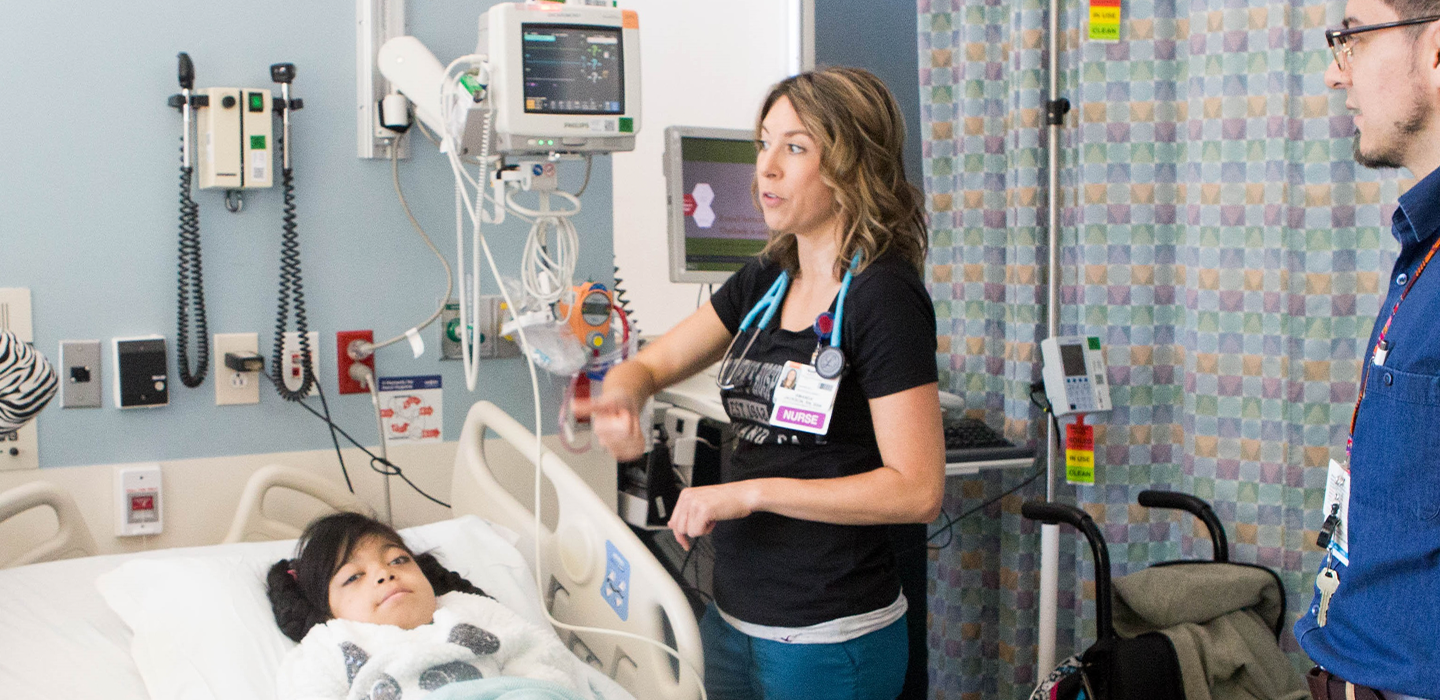Found in Translation
Our interpreters help give families a voice.

Medical terminology can be difficult to understand – baffling gene mutations, complicated treatment options, the winding road of follow-up care. And that’s in your native tongue.
For families that speak languages other than English, the fear of misunderstanding is added to the countless stresses of caring for a sick child. That’s why, at our hospitals, special teams are devoted to ensuring that every family can fully understand their medical care.
“Language access is a family’s right,” explains Hilda Diaz, manager of the program on our Oakland campus. “Every family deserves to have a complete understanding of what their child will encounter.”
Interpretation is offered in 72 languages, from Albanian to Vietnamese, via a team of 13 full-time and four on-call interpreters, with additional video and phone service. This highly trained team is frequently described as “unsung heroes.”
And for good reason: Their work dramatically impacts families’ experiences throughout the hospital. Requests average between 150 to 200 per day, with the biggest demand for Spanish; more than 25% of our families identify as native Spanish speakers.
At a recent neurology appointment, for example, an interpreter was able to save the day when friction between a new teen patient and his parents boiled to the surface.
“The interpreter helped me lead a group therapy session, which turned out to be a wonderful interaction,” says Dr. Marisa Gardner. “We discuss many difficult topics during visits, and interpreters help create an emotional connection with families that would be impossible without them.”
Mam, an indigenous Mayan language spoken in Guatemala, was recently added to the roster. In this and many other dialects, interpreters face a unique challenge: Many Western medical terms simply don’t exist. Interpreters find themselves doing verbal gymnastics to convey, for example, a complex diagnosis in basic, but accurate, vocabulary.
Cultural nuances are also at play. Patients often feel more at ease divulging sensitive personal information, like abuse or mental health issues, with someone who shares their culture and language.
“Interpreters connect two worlds, and the value of that work is underestimated,” Diaz says. “We can laugh and play during a physical therapy appointment, then go straight into relaying terrible news. You become a chameleon, adapting to whatever is thrown at you.”
Diaz shares one of her favorite memories from her eight years of front-line service. After having to interpret the worst words a parent can imagine – “Your child isn’t going to make it” – the mother accepted the heartbreaking news, then asked to have her infant daughter baptized. Diaz interpreted the ceremony right in the middle of the intensive care unit.
“We had our hospital chap-lain, doctors, nurses, social workers, and so many more – everyone came together,” Diaz recalls. “There was a true sense of community, and it didn’t feel sad despite the circumstances. It was a celebration. To be able to support the family in that way was special.”
This experience gets to the heart of the team’s role: delivering compassion and comfort. That’s what keeps Myra Guzman-Teare passion-ate about her work after more than 10 years of interpreting.
“We can’t change the outcome,” she says. “But at least we can be there to make sure parents understand and help them cope.”
To learn more about interpreter services, contact Hilda Diaz at (510) 428-3063.